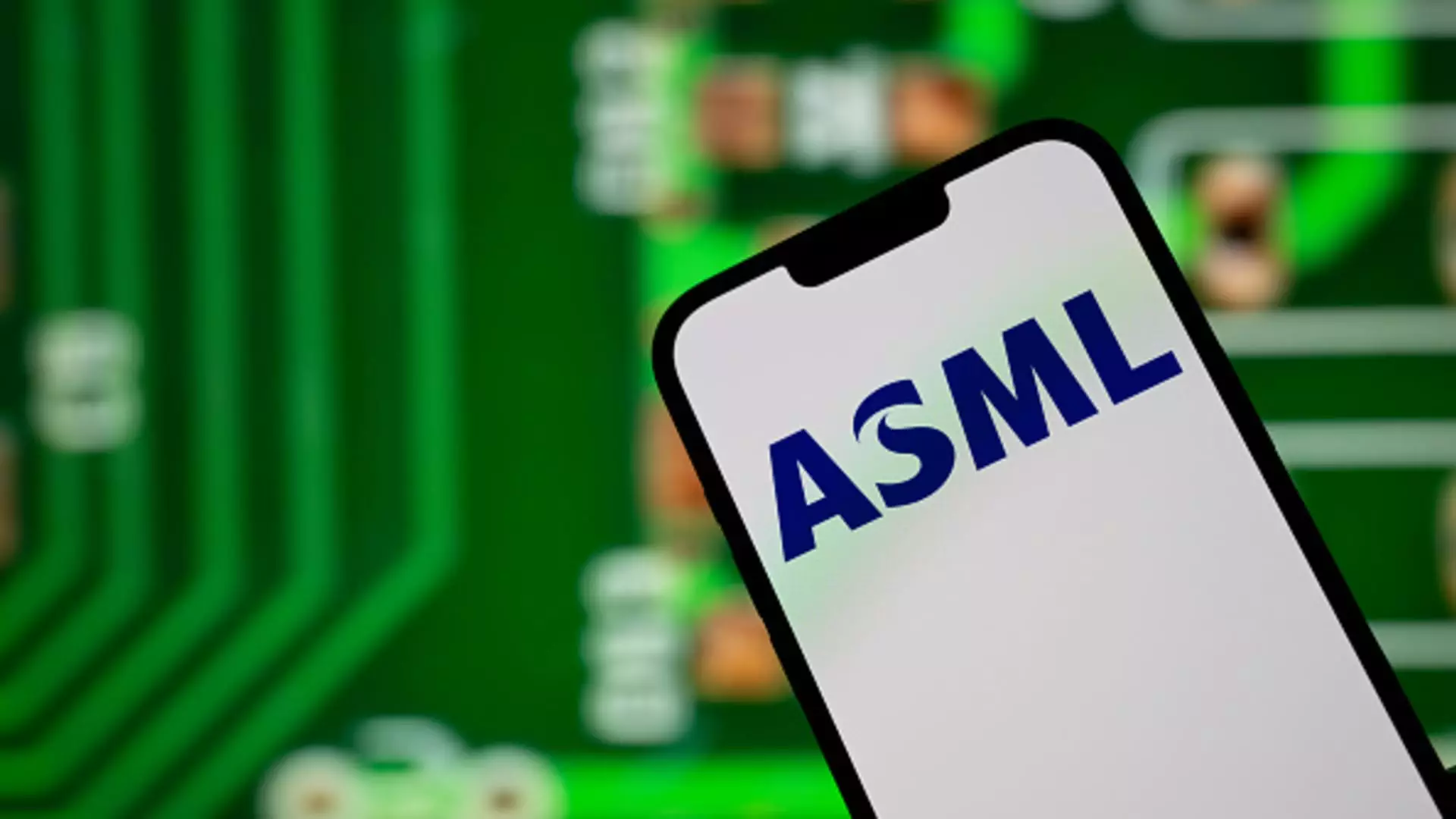In a rapidly evolving tech landscape, ASML, a frontrunner in semiconductor manufacturing equipment, has found itself in a precarious position. The company reported net bookings of €3.94 billion ($4.47 billion) for the first quarter of 2025, significantly underperforming the €4.89 billion expectations set by analysts. This discrepancy raises critical questions about the health of the semiconductor industry, especially as it has been a driving force behind technological advancement in recent years. With net sales reaching €7.74 billion, slightly below the anticipated €7.8 billion, signs of potential demand decay for chip-making machines cannot be ignored.
Leadership Insights and Business Strategy Concerns
CEO Christophe Fouquet remains optimistic about the demand outlook, citing artificial intelligence as a continuing catalyst for growth. However, such optimism seems to be clouded by the intersecting uncertainties affecting the broader market. Specifically, Fouquet mentioned apprehensions regarding customers and the impact of tariffs, which he believes are creating an unpredictable environment for business operations. This raises an important point: while innovation and demand for advanced technology thrive, external factors like economic policy shifts and global trade tensions could strangle those aspirations, leading to unpredictability in booking and revenue streams.
The External Factors Influencing Future Demand
ASML’s situation exemplifies how macroeconomic factors play a critical role in the semiconductor sector. The rising concerns over U.S. President Donald Trump’s tariff proposals on semiconductor imports have shaken investor confidence, causing fluctuation in global chip stock values. The temporary exemptions announced for certain tech categories do little to alleviate the overall uncertainty. The cascading effect of these tariffs and potential retaliations can widen the gap between projected and actual bookings, putting pressure on companies that rely heavily on a stable supply chain for their products. If ASML’s essential machinery is affected by these market anxieties, the ripple effect could manifest in slowing technological advancements.
The Road Ahead: Navigating an Uncertain Landscape
ASML projects 2025 revenues between €30 billion and €35 billion, yet the ecosystem surrounding chip manufacturing is evolving. It is crucial for ASML to adopt an adaptive strategy that acknowledges both the allure of emerging tech like AI and the volatility of geopolitical conditions impacting trade. As they’ve recognized challenges in meeting full-year revenue guidance, an agile business strategy must become an imperative. Should they realize the necessity for flexibility—both in operations and customer relations—they may not just weather the current storm but also emerge as a resilient leader in a tightly-knit global market.
In an industry where technological innovation meets stringent political realities, ASML must tread carefully. Its experience serves as a stark reminder that even the most promising sectors can experience downturns based on external factors. Only time will tell if ASML can channel its business acumen to navigate these turbulent waters successfully.


Leave a Reply